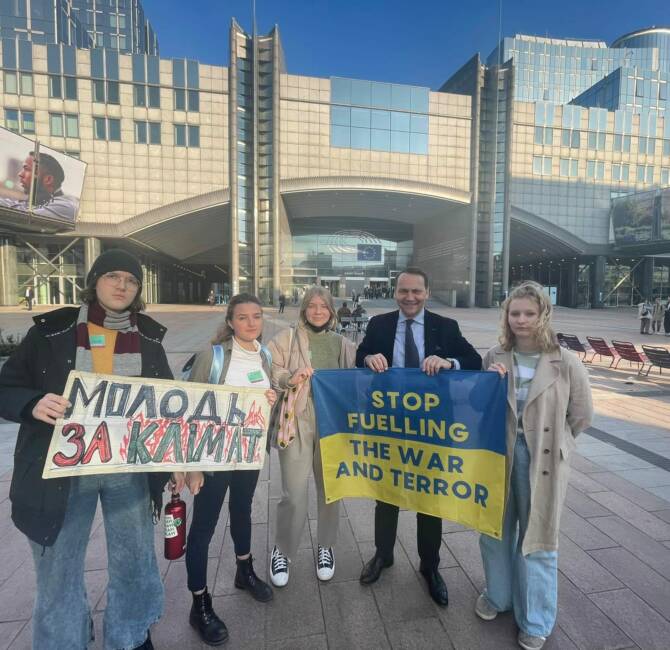By Olivier Bault.
Poland – For the German newspaper Die Welt, this was the most important visit of a German Chancellor since 1989. While a year ago the leader of the Liberal opposition called for a fight against the Conservative government of the Right Party And PiS “with the street and abroad”, whereas since the PiS victory at the October 2015 elections, the German mainstream media have been calling for sanctions against their eastern neighbor and constantly speaking – with a few exceptions – about Poland’s authoritarian drift, Angela Merkel’s visit to Warsaw on February 7 and her meeting with Prime Minister Beata Szydło, President Andrzej Duda and leader of the PiS Jarosław Kaczyński marks a turning-point.
Even the German media seem to have understood it: the absolute majority of the PiS in parliament and the support it continues to receive from a majority of voters (40% according to the latest CBOS poll, compared with only 17% and 9% in favor of the two liberal parties, PO and Nowoczesna) make it unavoidable for at least another three years, and so they must deal with it.
It is a first realization that seems to have taken place in Berlin, underlined by the fact that if Angela Merkel also met the leaders of the two parties of the coalition that governed Poland from 2007 to 2015 (PO and PSL) in their quality of members, as the CDU, of the European People’s Party (EPP), she did not meet the leader of the new liberal-libertarian party, both allied and competing with the PO in the “total” opposition to the PiS government. The second visible realization in Berlin is that Poland led by the PiS can be a valuable partner in saving a threatened European Union in its very existence. The Polish PiS is, like the Hungarian Fidesz, very supportive of the EU, despite the fact that these two conservative parties in Central Europe want an EU more respectful of national sovereignty.
Both Jarosław Kaczyński and Viktor Orbán are well aware that the EU may soon disappear and they see a redistribution of powers in favor of nation states as the only chance to save the common European institutions. One of the main objectives of the German Chancellor’s visit to Poland was precisely to obtain Poland’s support to save the European Union. While immigration is a point of disagreement, and not least, as well as to some extent energy policy (and in particular the Nord Stream pipeline), Berlin and Warsaw are rather on the same line with regard to European defense and the need to preserve the Single Market.
This explains the distance between the PiS and the German AFD and even the remarks made by Polish Foreign Minister Witold Waszczykowski who said last November that Angela Merkel’s victory at the next German parliamentary elections would be “the most favorable outcome from the point of view of the interests of Poland”. This point of view has been confirmed in interviews of Jarosław Kaczyński.
The last meeting between Angela Merkel and Jarosław Kaczyński took place last July in Germany, and more recently in November a group of PiS deputies traveled to Berlin for exchanges with the deputies of the CDU-CSU- SPD for business in Germany, the aim being for MPs from both countries to bypass the filter of engaged media and speak directly to each other.
Translated from French by the Visegrád Post.




